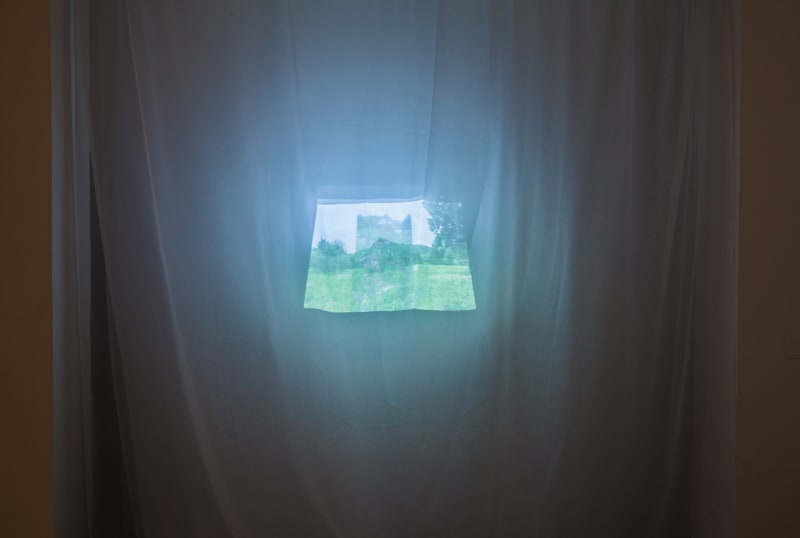Perhaps it is more a question
of seeking to feel at home here,
in the only moment and context that we have...
Ian Chambers
Ursula Tautz presents photographs and a video installation. Researching the relationships involving dwelling, belonging, the artist uses the (re) signification of the space for the development of her own questions: inquietude, a permanent uneasiness, the postmodern condition of being a foreigner in your own land. The series of photographs was carried out in the city of Ołdrzychowice Kłodzkie, Poland, former Ullersdorf an der Biele, where her family is from. They consist of five digitally manipulated photographs, printed on photographic paper in PS, as well as of a looping projection on the wall. In these snapshots, coloured in red and in the fetal position, the artist acts as a character so as to merge with the landscape and the architecture. After the capture, Ursula overlaps two or more photos, creating a double of herself, looking for other meanings to the photographed space.
Ursula makes a search journey. Intrigued by the familiar trajectory, she travels to the past she never knew, but which is always present, filling her everyday with memories. Retracing the path once taken by her relatives is a vital impulse, necessary and urgent. More than anything, the artist seeks her history, sites where she belongs, her roots. It is important that nothing is forgotten. Not the war, nor the hunger, nor the Poland house and its surroundings. Redoing cycles helps assuage anxieties and feelings of lacking, but never the strangeness of not belonging.
The proposal of the artist is quite revealing of her restlessness. On Polish soil, homeland of her ancestors, Ursula seeks rebirth, to find her place. She goes into the fetal position and allows herself to be photographed on the ground, on the vegetation that grows independently and without care. This is her place of gestation, a secret, cozy and familiar place, but also foreign in a way. "The uncanny is something which is secretly familiar, which has undergone repression and then returned" according to a mention by Freud, developed in the essay "Das Unheimliche" (1919). The identification with the place is such that she herself gradually blends in with the vegetation. The light and the colors complete the text that appears behind the image. With extreme delicacy, Ursula's images speak of reunion, changes, surrender and acceptance.
Isabel Portella

